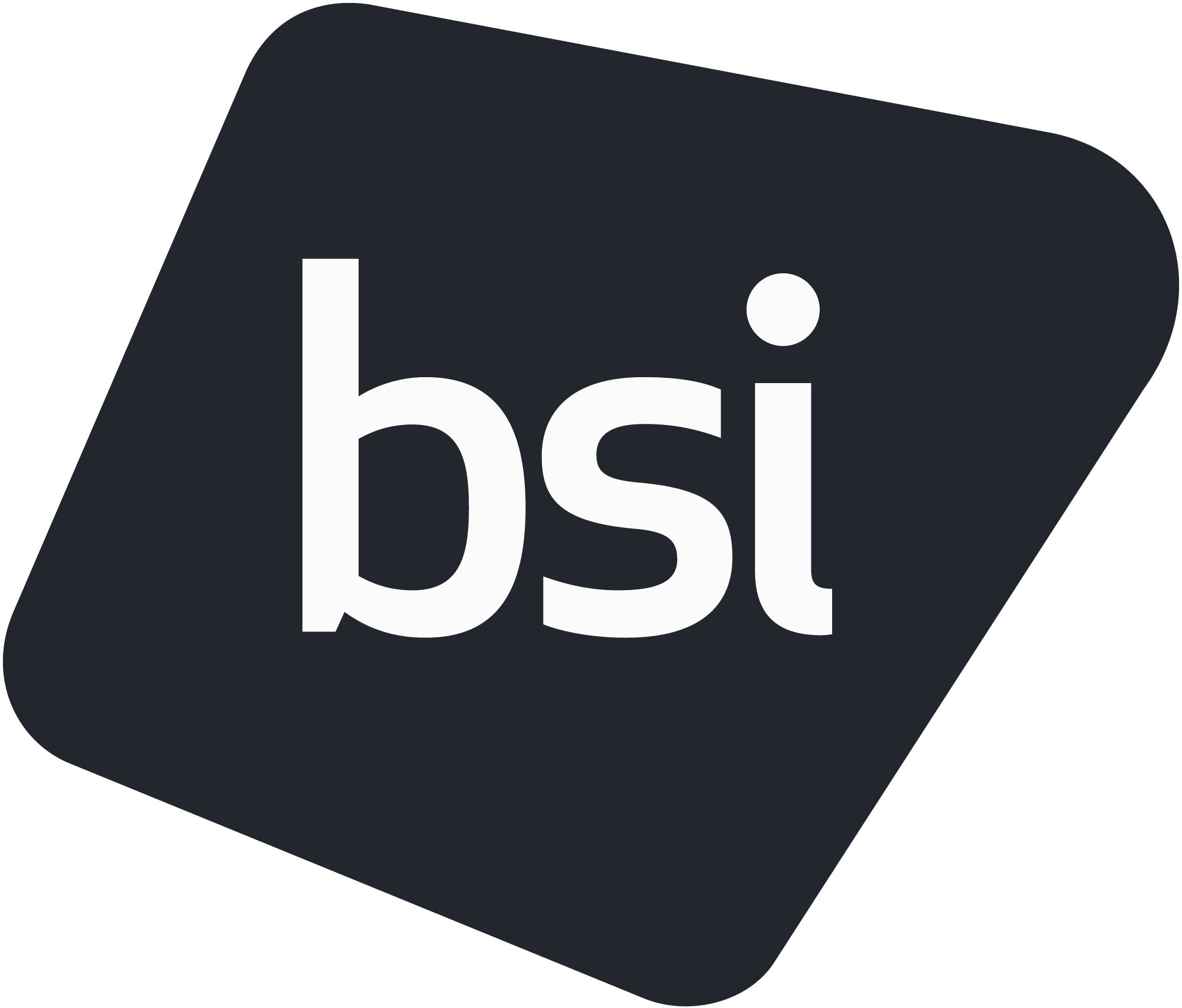According to BSI’s exploration of business activity and attitudes towards AI, more than three-quarters of global business leaders (76%) feel that organisations will be at a competitive disadvantage if they do not invest in AI. Yet BSI’s International AI Maturity Model, which assesses and weighs a suite of measures, including organisational confidence and readiness, found countries at markedly different stages on their journeys.
South Africa has witnessed a significant uptake in AI in recent years.[1] Many organisations have received significant funding ($20 billion+)[2] to support AI efforts in healthcare, education and finance[3] specifically. So how can South African business leaders continue to ensure it can be a force for good, changing lives, making a positive impact on society and accelerating progress towards a sustainable world? There are two critical components worth discussing: strategy and governance. Because AI is a tool to support and augment the human factor, both are critical for success.
Thinking strategically, whether you are creating AI tools or just leveraging them, might sound obvious. Yet according to BSI’s research, under half of businesses globally have an AI strategy (44%). The reality is that success with AI will depend on answering the what and the why of introducing it to your business. This means understanding your individual organisation’s needs and getting to grips with what AI can actually do, then working out how those two things align. That might direct you to hefty investment in tools, but that alone isn’t a recipe for success, because before you invest, you need to know what you are aiming to do, what AI can solve or how it can enhance decision-making. Is your aim to free up skilled resources? What is it that you're trying to get AI to do and what’s the desired impact? What’s your expected return on investment, what are the risks and who will be managing the tools day to day? What external parties will now be involved with your business? What does it mean for your customers, workforce and supply chain?
AI strategy is about wider business strategy and it’s part of the conversation about where you want your business to go. Not only that, but strategy can’t be stationary because AI is moving at a rapid pace. As the technology changes, the considerations evolve and the legislative and regulatory context shifts. So your business’s AI strategy must be agile and responsive.
Equally, putting effective governance in place is vital. AI is to some degree the great unknown. While it offers huge potential to be a force for good for society, there are many considerations for businesses at the vanguard. Regulation of AI in South Africa is still in its infancy; however, the country is well-positioned to ensure its safe and responsible use, as many organisations have started to put plans and processes in place to ensure the responsible use of AI. For example, the South African Reserve Bank’s (SARB) Financial Technology unit that has been established for this.[4] With AI’s capabilities developing fast,[i] having appropriate governance systems in place can enable us to make not just good, but great, use of AI in every area of life and society. This is addressed in the recently published AI management system framework (ISO/IEC 42001).
Business leaders may not be responsible for creating the AI tools they use, but they will still be accountable for any impacts they have. And there are wider questions; is the AI being used in the way that is actually intended to be used and for its intended purpose? Having an independent, safe governance mechanism that understands the external factors influencing your use of AI, but sits separately from those managing the day-to-day use of AI, offers the best path to success. This can take many forms; it’s not necessarily about having a dedicated AI board or even a chief AI officer, but having an independent function. Get the governance right and everything else will follow. It’s important to follow the guidance within standards such as Data Quality (ISO 8000-1), where business data drives the AI algorithms. The international standards on data integrity can help provide adequate governance.
The importance of both a well-developed, agile strategy and the need for effective governance is well understood by most businesses. Yet BSI’s research shows a gap between ambition and action when it comes to delivering the training and stakeholder engagement needed to build trust in AI.
While AI is moving fast, we do have the chance to get this right, to learn from the introduction of past technologies and build an AI ecosystem in which businesses can act with confidence and responsibility, making AI a force for good across society in South Africa. BSI offers a range of on-demand training courses covering topics from fundamentals to industry-specific considerations to empower you in the AI-driven era.
[1] Navigating Artificial Intelligence Adoption in South Africa (cm.com)
[2] South Africa and Artificial Intelligence | BCG
Share
